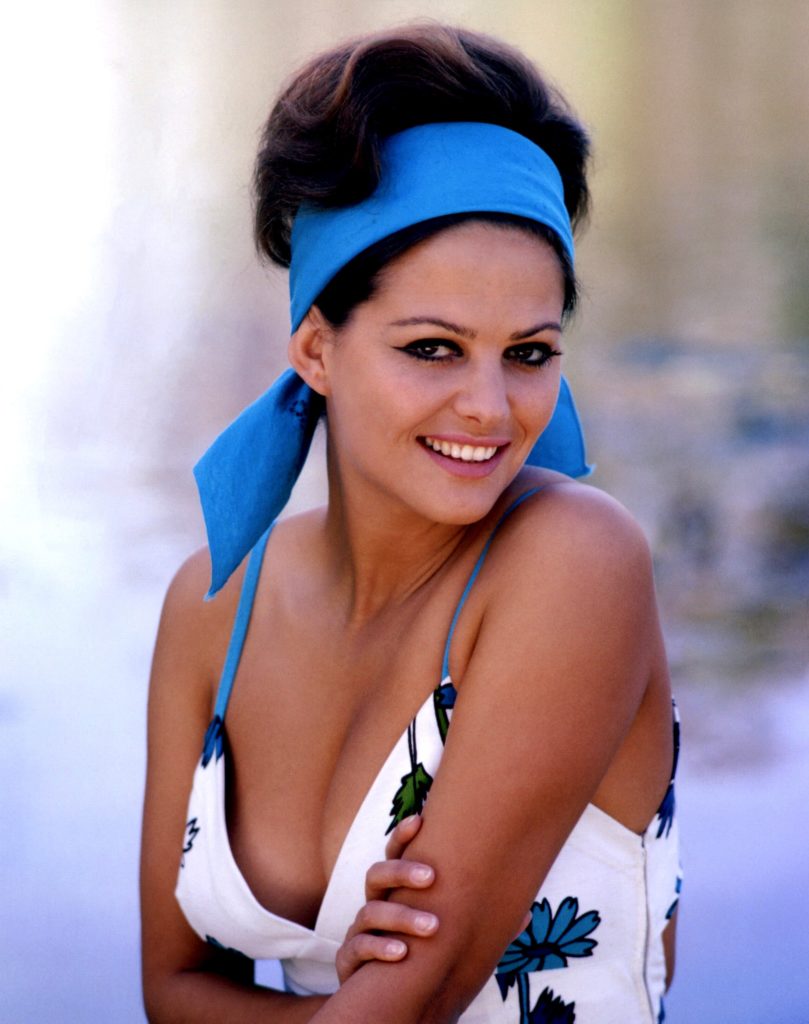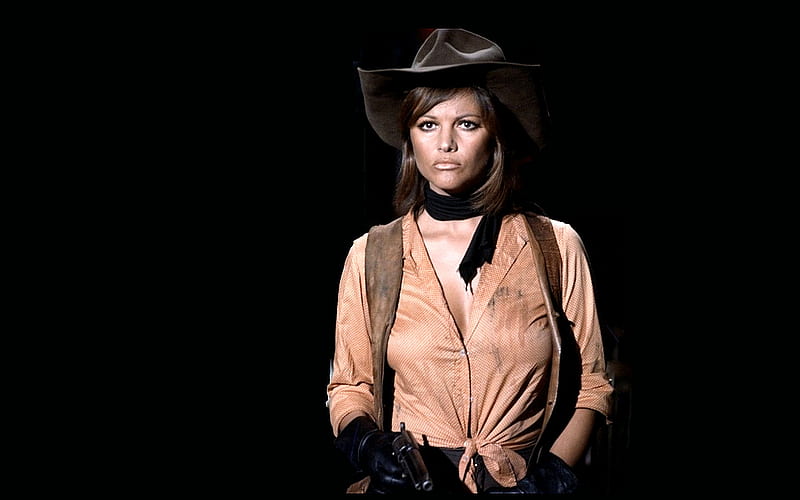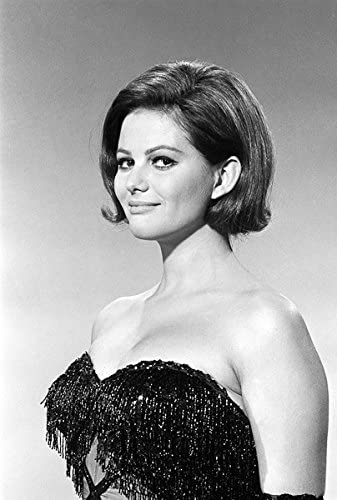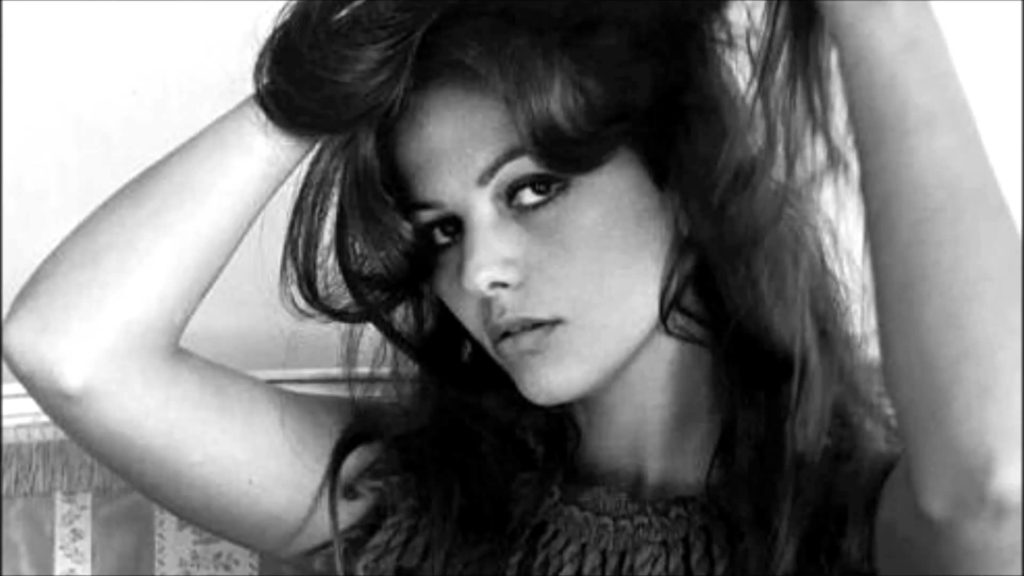Born Claude Joséphine Rose Cardinale, better known by her pop singer Claudia Cardinale, is an Italian-Tunisian actress best remembered for her roles in acclaimed 1960s and 1970s European and American films. She was born and raised in Tunis, Tunisia.

Claudia Cardinale’s Date of Birth and Age
Cardinale was born on April 15, 1938, at La Goulette, a nearby town to Tunis, the country’s capital.
Claudia Cardinale’s Parents
Yolande Greco, her mother, was an immigrant from Italy. Francesco Cardinale, her father, was a railway employee who was born in Gela, Sicily. She was fluent in French, Arabic, and her parents’ native tongue of Italy.
She just began to learn Italian after working in the Italian film business. Cardinale grew up with a younger sister, Blanche, and two brothers, Bruno and Adrien.
She received her education at the Paul Cambon School after attending the Saint-Joseph-de-apparition School in Carthage. At first, she wanted to be a teacher.

Claudia Cardinale’s Husband
Cardinale had a child in a relationship with a Frenchman at the start of her film career. In addition to keeping everything a secret, her mentor, Cristaldi, helped her by sending her to London for the delivery. Patrick, Cardinale’s son, was raised by Cardinale’s parents. He learned the truth from her a long time afterward.
Cristaldi joined her in 1966 while she worked on her Hollywood movies in the US. In Atlanta, they got married. The marriage was not, however, recognized as legal in Italy. Cristaldi took custody of her kid. In 1975, the couple divorced.
She lived with Pasquale Squitieri from 1975 till his death in 2017. Claudia, one of their daughters, was also born. She released her autobiography, “Io Claudia, Tu Claudia,” in 1995. Cardinale appeared on stage in the drama “La Strana Coppia” to mark her 80th birthday.
Claudia Cardinale’s Career
Cardinale appeared in the short movie “Anneaux d’or.” French filmmaker Jacques Baratier recognized her when the movie was shown at the “Berlin Film Festival.”
In the movie “Goha,” she had a supporting part alongside Omar Sharif (1958). The movie took up the jury prize at the Cannes Film Festival in 1958.
She won the “Most Beautiful Italian Girl in Tunisia” competition and a trip to the “Venice Film Festival” during the 1957 “Italian Cinema Week” in Tunis.
Film producers took note of her, and she was given the opportunity to enroll in a course at the “Experimental Cinematography Center.” After her first semester, she left the institution due to language barriers.
She rejected multiple film offers and went back to her village. She then changed her mind due to personal conditions, and she signed a 7-year deal with the production firm “Vides” of Italian movie producer Franco Cristaldi.
She received encouragement from Cristaldi while she struggled, he served as her mentor, and they were married.
She had a brief appearance in the popular crime comedy “Big Deal on Madonna Street” (1958), and the industry welcomed her with open arms. She starred in the comedy movie “Three Strangers in Rome” that same year. She took a short vacation and traveled to England.

In 1959, Cardinale acted in the Italian film “Vento del Sud,” the Italian movie “II magistrato,” the British movie “Upstairs and Downstairs,” and the film “Un maledetto imbroglio.” When she first entered the field, her voice was dubbed.
She appeared in the 1960s films “Il bell’Antonio,” which she co-starred in with Marcello Mastroianni, “Napoleone ad Austerlitz,” “Big Deal on Madonna Street 2,” and the highly acclaimed “Rocco and His Brothers” (1960). She gained fame by playing the lead in Francesco Maselli’s “Silver Spoon Set” (1960).
In Valerio Zurlini’s “Girl with a Suitcase,” Cardinale played the part of “Aida,” a nightclub singer and a young mother, with honesty because of her personal experience.
A variety of movies, including “La Viaccia,” “Senilita,” by Bolognini, the French comedy “Les Lions Sont lâchés,” and “Cartouche,” came after this. She became a celebrity in France because of her most recent movie.
She appeared in many important projects in 1963, including Visconti’s “The Leopard,” which also starred Burt Lancaster. Additionally, she was cast as a movie actress in Fellini’s “8 12.”
Both movies received high excellent reviews and are considered to be among the best movies ever produced. Cardinale quickly came into popularity. She won her first “Nastro d’Argento” for “Best Actress” in 1965 for playing a prostitute in “Bebo’s Girl.”
Even though it was made in Italy, her first American film, “The Pink Panther,” starring David Niven, was released here.
Following the release of “Time of Indifference” in 1964, she appeared in several Hollywood productions over the course of the following three years, including “Circus World” (1964), which starred John Wayne and Rita Hayworth, “Blindfold,” which starred Rock Hudson, “Lost Command,” directed by Mark Robson, and “The Professionals,” a Western by Richard Brooks.
She appeared in several Hollywood films, but since she did not sign exclusive contracts, she was unable to achieve the same level of fame as Gina Lollobrigida or Sophia Loren. She went back to Italy at the end of the 1960s.
She received the “David di Donatello for Best Actress” award in 1968 for her work in “The Day of the Owl.” In the epic Western “Once Upon a Time in the West,” she played a former prostitute, one of her most well-known roles.
Brigitte Bardot and Cardinale collaborated on the French Western comedy “The Legend of Frenchie King.” Her performance as a prostitute in the comedy “A Girl in Australia” earned her the “Best Actress Award” at the 1972 David di Donatello Awards.
On the set of his historical drama movie “I guappi,” Cardinale got to know director Pasquale Squitieri (1974). He remained at her side till his passing in 2017.
She appeared in a number of his movies, including “Il prefetto di ferro,” “Carleone,” “L’arma,” and others. “Stupor Mundi” and “Naso di Cane,” both from 1986. (1997). She received the “Nastro d’Argento” award for “Best Actress” for her title role in “Claretta.”
She appeared in the military film “The Skin” with Burt Lancaster, which was shown at the 1981 Cannes Film Festival. Her 1982 movie “Fitzcarraldo” won several awards. Many people praised Cardinale for her performance as a cancer patient in the 1987 movie “A Man in Love.”
The movie was also shown at the Cannes Film Festival in 1987. In the 1991 film “Mayrig” (mother) and its follow-up, “588, rues Paradis,” her performance as a mother was praised for being “flawless.” She was the recipient of the “Leone d’oro alla Carriera” honor at the 1993 Venice Film Festival.
Cardinale made her theatrical appearance in Paris in 2000 with Maurizio Scaparro’s “La Venexiana.” She performed in a theatrical tour in Italy in 2002 called “Come tu mi vuoi.”
She has also appeared in plays including “The Glass Menagerie” (2006–2007) and “Sweet Bird of Youth” (2005, 2005).
For her performance as an elderly Italian lady in “Signora Enrica,” she was given the 2010 “Golden Orange Best Actress Award.” She received praise for her work in “Gebo and the Shadow” (2012) as well.


